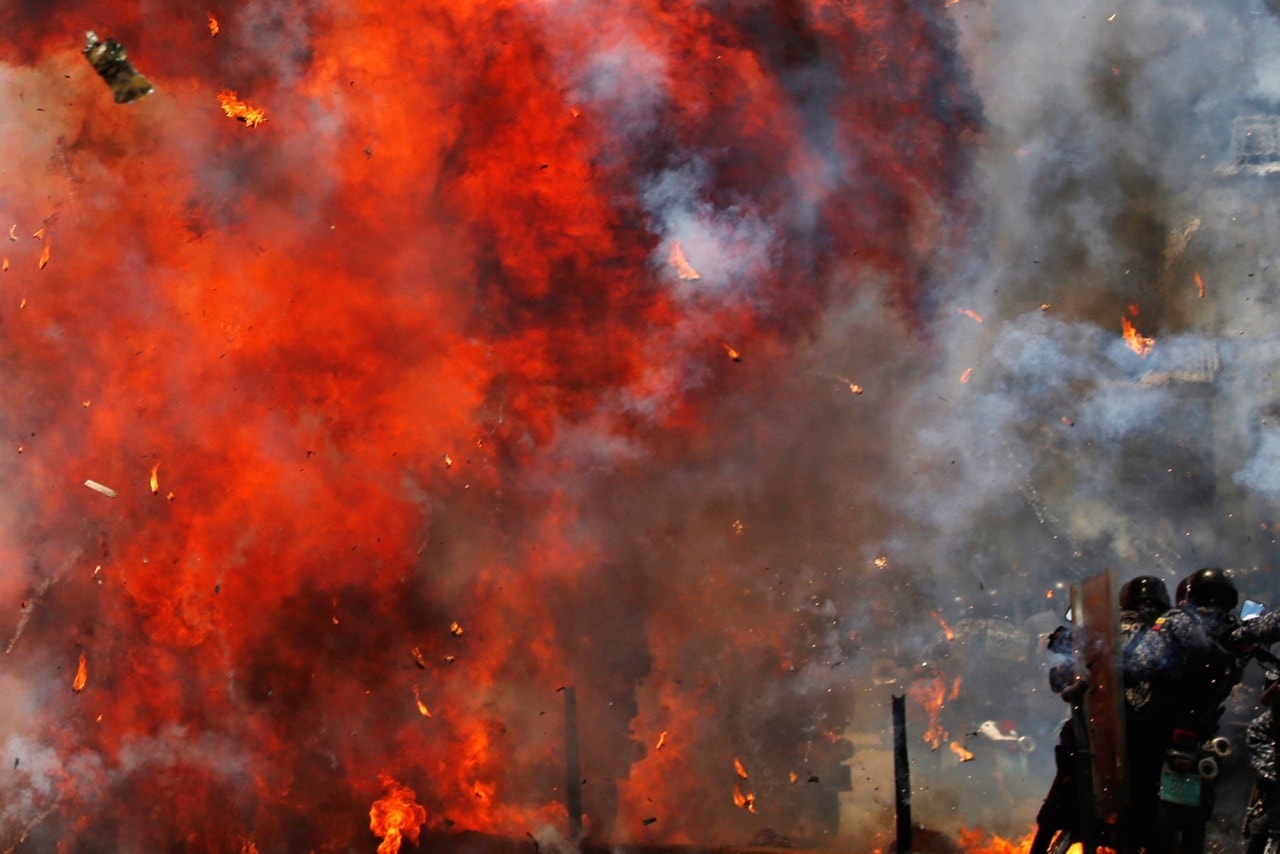A roundup of key free expression news in the Americas, based on IFEX member reports.
At least 12 dead. An unconstitutional, invalid, null and void election that has been condemned by dozens of countries and organisations, both in the region and internationally.
There is not much more to say about the situation in Venezuela, where the most basic freedoms have disappeared in recent days. The loss of freedoms included one of the more transcendental facets of freedom of expression: the possibility for citizens to freely choose who they want to represent them within the country’s power structures.
Among those condemning this state of affairs, the Office of the United Nations High Commissioner for Human Rights on Monday denounced the situation in Venezuela for continuing to violate the right to freedom of assembly and for the authorities’ use of violence to disperse demonstrations.
The elections, which were called and ‘validated’ by the government of Nicolás Maduro, were rejected by millions of Venezuelans. Despite last minute bans on demonstrations, citizens took to the streets to protest. The social tension that had been building with mobilisations over the last few months exploded on Sunday, when elections for the National Constituent Assembly were held.
Organisation of American States (OAS) Secretary General Luis Almagro harshly criticised the Venezuelan government’s decision to carry out the elections, saying the Maduro regime decided illegally to call an invalid, null and void election that lacked constitutional validity.
It is still too early to know where the gunshots that killed at least 12 Venezuelans came from. What is known is that a number of journalist and independent media reports revealed that the Bolivarian National Guard of Venezuela harshly repressed the demonstrations, in addition to implementing strong censorship measures and restrictions on freedom of expression.
According to IFEX member Espacio Público there were 24 cases of restrictions on the press, in violation of freedom of expression principles. This equated to at least 29 violations of the rights of 27 journalists. Espacio Público also noted that the press have been persecuted, harassed and attacked.
In addition, the organisation reported that the government had decreed “coverage guidelines” for the election, which included a prohibition on entry by the media to polling stations without accreditation. Accreditation was denied to the Correo del Caroní, El Pitazo, Vivo Play, La Patilla, Analítica.com, CNN en Español and Notiminuto media outlets. International press personnel were also denied accreditation, among them journalist Jorge Lanata, who was deported from the country on 27 July, joining the ranks of journalists Luis Garriapa and Odacir Junior, from Portugal’s SIC Noticias.
Those who obtained all the accreditations and respected all the new rules imposed by the regime were still not safe from intimidation and harassment. Journalist Brigitte Gerdel and photojournalist Daniel Rodríguez, of the daily Las Noticias de Cojedes, were stopped and held by State Police personnel, who took away their credentials and classified them as “suspects”.
These events were preceded by other bans and acts of censorship on the part of the government, which led to strong condemnation by the Inter-American Commission on Human Rights (IACHR) Office of the Special Rapporteur for Freedom of Expression.
The IACHR viewed the measures implemented by the Venezuelan government as geared toward hindering the exercise of the rights to freedom of expression and freedom of the press, and prohibiting the exercise of the rights to peaceful assembly and protest.
Few options are seen in the near future for improvements to the Venezuelan situation.
Impunity and attacks
In other countries the situation also continues to be very difficult. In Mexico, police found the burned body of journalist Salvador Adame Pardo beside a road in the municipality of Nueva Italia, in the state of Michoacán. Adame disappeared on 18 May 2017.
Salvador Adame Pardo is the 7th journalist assassinated in Mexico thus far in 2017; he was preceded by Cecilio Pineda Birto, Miroslava Breach, Maximino Rodríguez, Javier Valdez Cárdenas, Ricardo Monlui and Filiberto Álvarez Landeros. Since 2000, more than 100 journalists have been killed in Mexico.
In light of this situation, Reporters Without Borders (RSF) issued a letter to Mexican President Enrique Peña Nieto on the occasion of his official visit to France.
RSF noted to President Peña Nieto that “Mexico has become the deadliest country for journalists in 2017“.
This had little effect as July brought new death threats against journalists for simply carrying out their work.
Meanwhile, IFEX member ARTICLE 19, in addition to striving to clarify this dismal situation, has been carrying out a campaign to improve access to information in indigenous and rural communities as a tool for accessing other rights. The organisation presented a report entitled Proactive Transparency, which collates the results of the campaign.
Colombia returned to the headlines, and not with good news. At the beginning of July, FLIP reported that María Montiel, a correspondent for Colombia Informa, was illegally detained.
In addition, senator and former president Álvaro Uribe continued his policy of harassment and defamation against media who are critical of his actions. As a result, more than 50 journalists, editors and columnists released a joint statement calling on Uribe to halt this behaviour.
In July, the IACHR’s Office of the Special Rapporteur for Freedom of Expression presented its annual report in Peru. Two assassinations, several journalists sued for defamation, “insults” and attacks against national security, as well as the lack of an authority to resolve conflicts relating to access to public information, are the main problems covered by the report regarding the Andean country.
In the United States, National Whistleblower Day was commemorated in an attempt to promote a more open and informed society. Commemoration of this day has been gaining momentum in a context of continuous attacks on the press by President Donald Trump.
